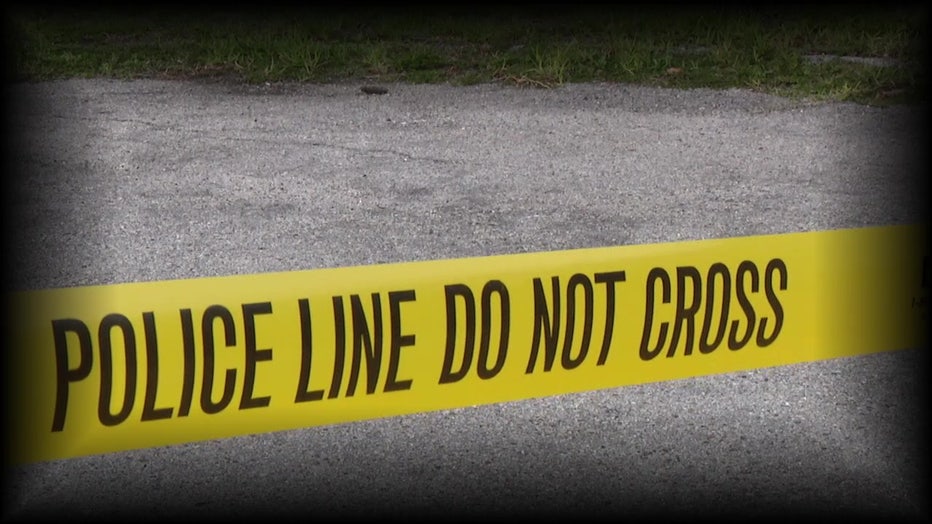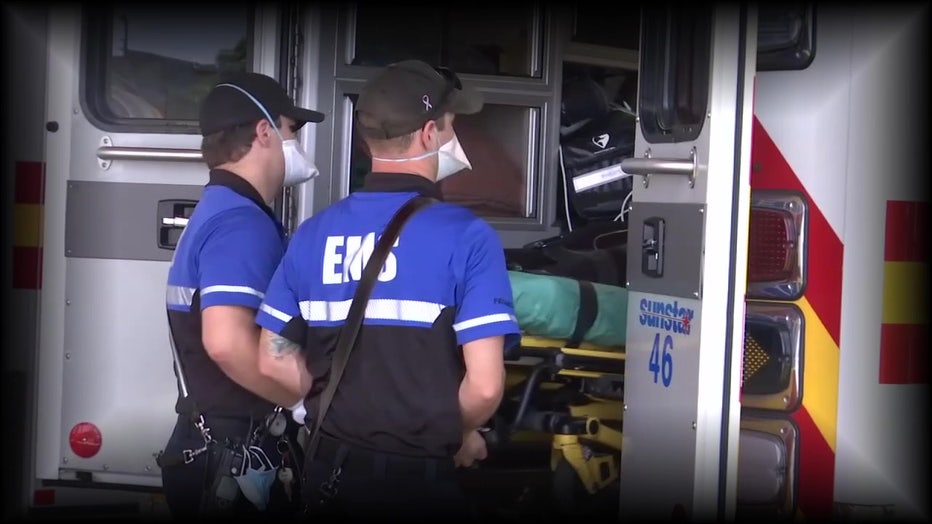Tampa Bay leaders emphasizing importance of mental health for first responders
TAMPA, Fla. - Law enforcement and first responders put their lives on the line to protect the community.
They often experience life altering and traumatic situations in the line of duty.
Mental health advocates say first responders and their families carry the weight of these experiences, on top of their personal lives.
Law enforcement leaders in the Tampa Bay Area are emphasizing the importance of their officers’ wellness and mental health.
Advocates say this starts with breaking the stigma surrounding mental health and first responders, and making resources and support more readily available.
"Our first responders are meant to be the helpers," The Crisis Center of Tampa Bay’s CEO Clara Reynolds explained. "They're the ones that, you know, they go into the fire. They respond when they have to. And we forget that they're human beings. That they have their own issues and feelings and emotions."
Due to the intensity and demands of their jobs, advocates say it’s easy for first responders’ mental and emotional needs to be put on the backburner.

Mental health advocates say that these jobs cans be intense.
"You know, I think for so long the stigma was that, ‘Nope. We're tough guys. We're tough women,’" Stephanie Yaslowitz Barnes, with Concerns of Police Survivors, also known as COPS, shared.
First responders are sometimes the people who need the help, as well though.
Over the last several years, Reynolds says the need for mental health resources for first responders has become particularly clear.
"I think more and more, people recognized that they were struggling," Reynolds said. "And then you add social unrest. You add political unrest. You know, what we're seeing globally around weather, all of these are certainly are risk factors and/or stressors for the average person. But then you add all of the requirements, all of the things that a first responder deals with."
Reynolds says first responders have a unique set of experiences that many others don’t understand.

First responders carry the weight of their jobs and their personal lives.
"You're able to have that professional detachment," Reynolds explained. "You go to your scene, you go to your call, and you're able to perform that duty. But there are oftentimes those situations, those cases that really touch you."
"They kind of put it in perspective, and you almost have to become numb to it," Yaslowitz Barnes said. "You know, and I think a lot of officers have over the years just become numb to it."
The numbness can often lead to silence, which can be extremely detrimental over time.
READ: Pinellas County officials hold mass casualty exercise at middle and high school
The Crisis Center has a hotline dedicated to first responders. The line, which can be reached at 1-866-4FL-HERO, is open 24/7 for first responders or their family members to call.
"Many times our first responders feel isolated," Reynolds shared. "They feel like they have nowhere to go. They're worried about their careers in this temporary moment in time."
Over and 11-month period, the Crisis Center says it got 598 calls from first responders and their family members.
"They do not have to struggle in silence," Reynolds said. "They don't have to face their crises alone, that there is help out there."
If you or a loved one is feeling distressed, call the National Suicide Prevention Lifeline. The crisis center provides free and confidential emotional support 24 hours a day, 7 days a week to civilians and veterans. Call the National Suicide Prevention Lifeline at 988 or 1-800-273-8255. Or text HOME to 741-741 (Crisis Text Line).
CLICK HERE for the warning signs and risk factors of suicide. Call 1-800-273-TALK for free and confidential emotional support.

